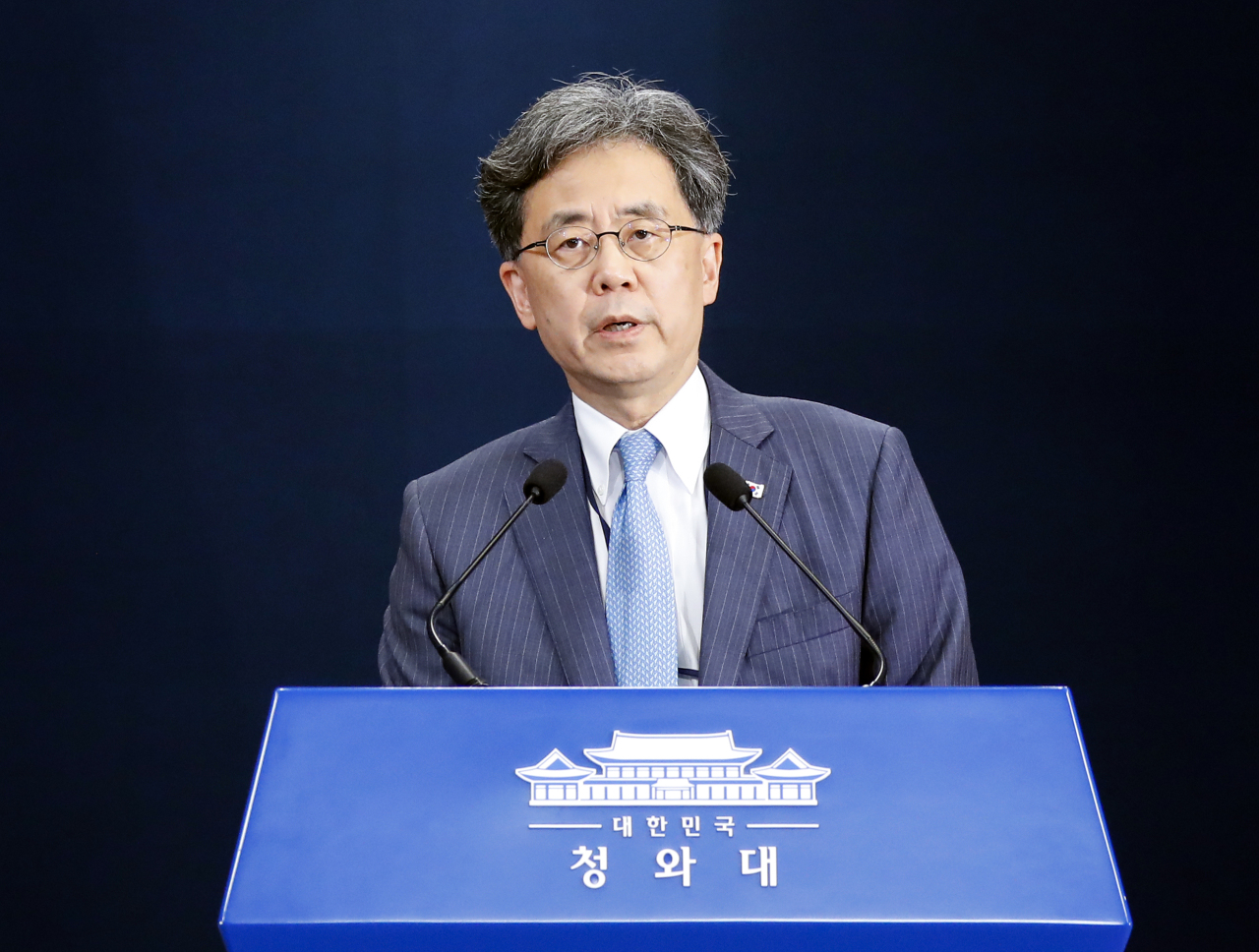Cheong Wa Dae says Japan violating int'l law, ponders ‘all options’
By YonhapPublished : July 19, 2019 - 17:31
The office of President Moon Jae-in accused Japan on Friday of breaching international law with unilateral export restrictions against South Korea.
Kim Hyun-chong, deputy chief of Cheong Wa Dae’s national security office, was countering a statement by Japanese Foreign Minister Taro Kono that Seoul is not abiding by a 1965 bilateral treaty in violation of international law.
Japan‘s claim is “incorrect,” Kim told reporters.
He pointed out that South Korea’s Supreme Court had ruled that the treaty does not cover compensation for Japan‘s “inhumane crime and infringement on human rights” against Korean victims of its wartime forced labor.

Kim, who serves as deputy national security adviser, said the government can’t ignore or discard the court decision in a democratic country with the constitutional division of powers.
He said Japan has taken the retaliatory trade measure while diplomatic efforts to resolve the problem “have not yet run out.”
He said Seoul is still willing to resolve the historical dispute and Japan‘s export curbs via diplomacy, adding “all options” are on the table.
“Our position is to be open to all constructive proposals under the perception that it’s important to resolve the forced labor issue diplomatically,” he said.
South Korea hopes for discussions with Japan on a “reasonable method” that can win “sympathy” from victims and the other people of the neighboring countries, he said.
A Cheong Wa Dae official later indicated that the bilateral military information-sharing accord is among the options. He said Cheong Wa Dae will “objectively scrutinize” the issue of General Security of Military Information Agreement.
“We‘ll be taking an objective look at the GSOMIA qualitatively and quantitatively in terms of the information that we (have) exchanged,” the official said in English. “We will scrutinize GSOMIA objectively and see qualitatively how helpful that is to us.”
Asked about Seoul’s offer of creating a joint fund of South Korean and Japanese companies for compensation, the official said Tokyo can put forward an appropriate counter-proposal in diplomatic consultations if it‘s against that.
Earlier this month, Japan put tougher restrictions on the export of core chipmaking materials to South Korea in protest at the court rulings.
The Abe administration asserts that all reparation issues related to the 1910-45 colonization of Korea were settled in the 1965 accord.
The Seoul court, however, ruled that the individual rights to compensation for wartime forced labor, which is an inhumane crime, holds true. It ordered Japanese firms to pay compensation.
The Cheong Wa Dae official said he does not expect Japan to retract the export curbs soon after its parliamentary elections this weekend.
Meanwhile, the official’s remark on the GSOMIA has caused confusion, as another Cheong Wa Dae official told reporters hours earlier that the future of the military agreement is “not connected” with Japan‘s economic reprisal. (Yonhap)



![[Herald Interview] 'Amid aging population, Korea to invite more young professionals from overseas'](http://res.heraldm.com/phpwas/restmb_idxmake.php?idx=644&simg=/content/image/2024/04/24/20240424050844_0.jpg&u=20240424200058)













![[KH Explains] Korean shipbuilding stocks rally: Real growth or bubble?](http://res.heraldm.com/phpwas/restmb_idxmake.php?idx=652&simg=/content/image/2024/04/25/20240425050656_0.jpg&u=)

